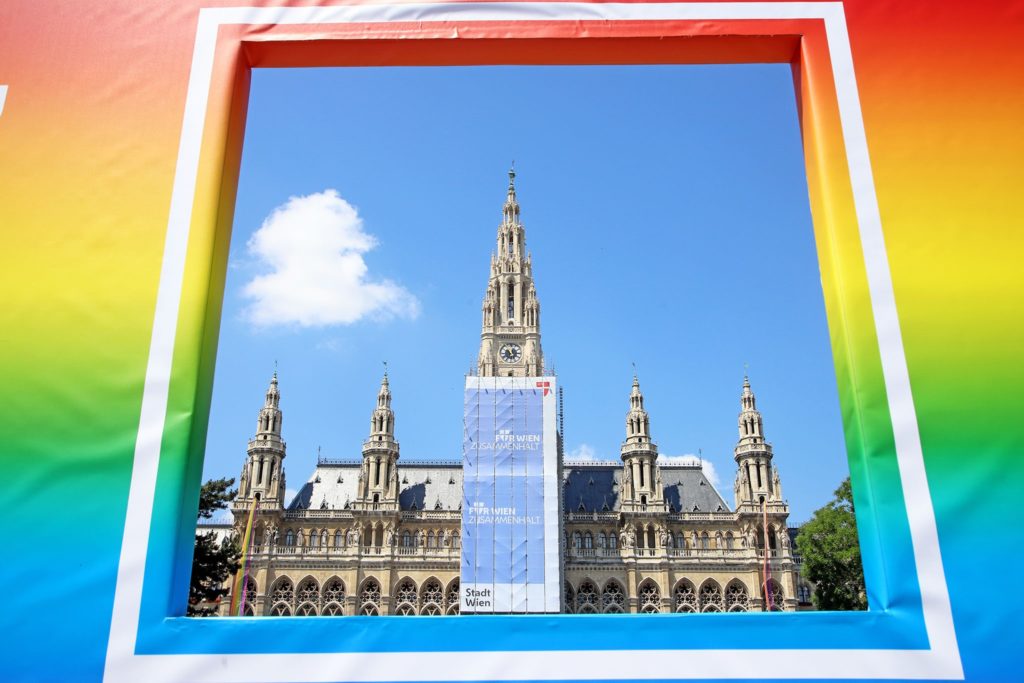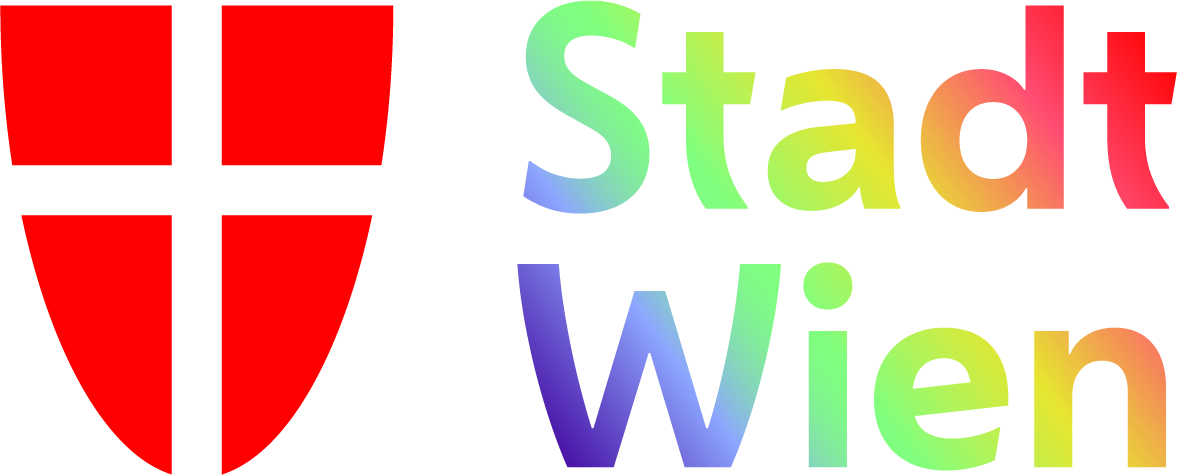Vienna

Description of the city
Vienna is one of Austria’s nine federal provinces, as well as the federal capital city and the largest municipality of the Republic of Austria. With 1,852.977 inhabitants (June 2016) Vienna is by far the biggest city in Austria.
Goal
The goal of Viennese LGBTI strategy is combating homophobia, transphobia and violence on a societal and legaslative level and raise the awareness for the concerns of LGBTI people to make Vienna a city of inclusion and acceptance.
Policy
In December 2014 Vienna declared itself a Human Rights City. The current LGBTIQ policy is based on this commitment and specified in the coalition agreement 2020-2025 (Wien ist Regenbogenhauptstadt).
“The Viennese Antidiscrimination Unit for LGBTIQ issues was established in 1998 and is still the only specific unit für LGBITQ issues in a local Austrian government. It is located in the bureau of the Vice Mayor’s and City Counsillors office for Education, Youth, Integration and Transperency.“

Focus areas
Focus areas
- Establishing diversity and awareness about LGBT issues within the public sector
- Advise for politicians and administration
- Conduct trainings on antidiscrimination, homosexuality, transidentity and inter*sex, within the Municipality and the health sector
- Mainstreaming diversity with the focus on LGBTI in education
- Provide funding for LGBTI NGOs
Collaboration partners
The WASt cooperates on a regular basis with all relevant municipial departments (www.wien.gv.at/english ) and with the local LGBTIQ-organisations such as HOSI-Wien (www.hosiwien.at), Rosa Lila Villa (www.dievilla.at), TransX (www.transx.at), Courage (www.courage-beratung.at), FAmOs Rainbow Families (www.regenbogenfamilien.at), RKL (www.rklambda.at), HOMED (www.homed.at). In addition to that, the WASt cooperates with the Austrian Police, trade unions, chamber of commerce and many other relevant stakeholders.
